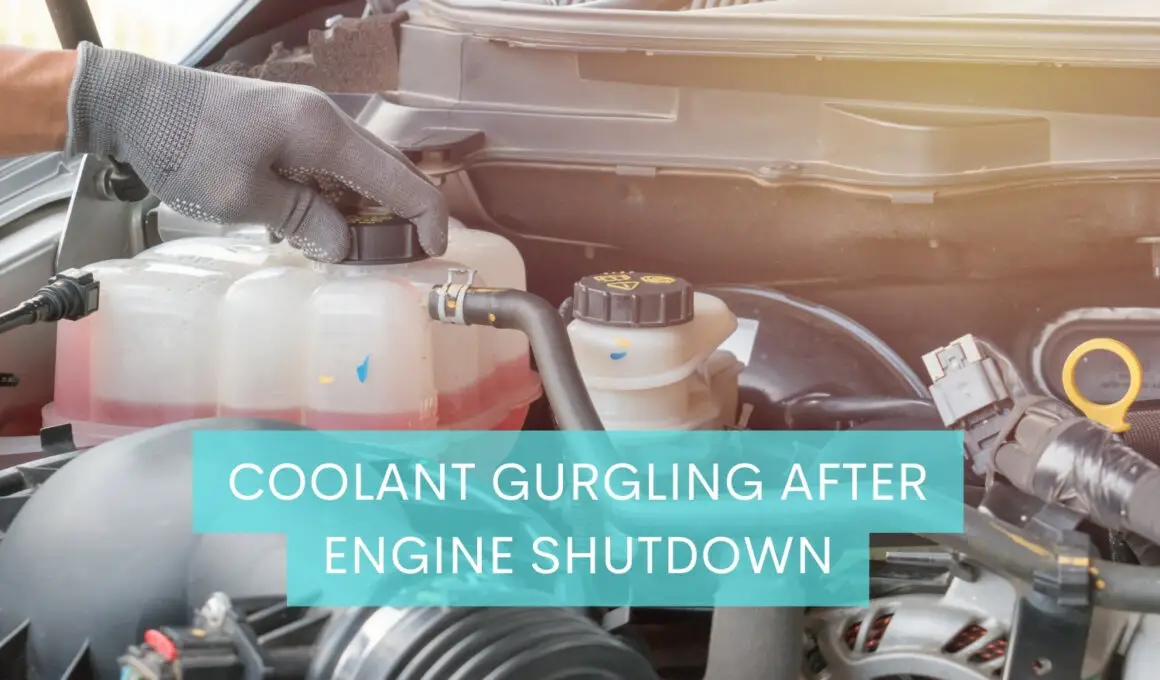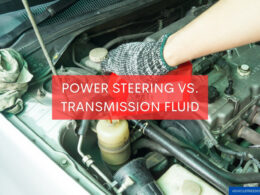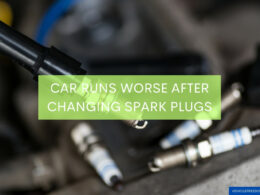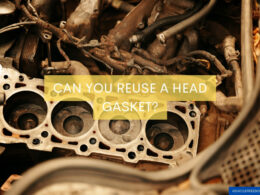In This Article Show
I understand how disconcerting it can be when your vehicle starts making unusual sounds. One such sound that many car owners have brought to my attention is a gurgling noise coming from the coolant system after the engine has been turned off.
I’m no stranger to strange noise in cars, I’ve written about a couple of them here on VehicleFreedom; take a look;
- Car Sounds Like Air Escaping When Turned Off: Causes & Fixes
- Buzzing Sound When Turning Car Key In Ignition
- Tire Rubbing Sound at Low Speeds: Causes and Fixes
- Crackling Sound in Car Dashboard (Causes & Fixes)
This noise can be as puzzling as it is concerning, especially if you’re not familiar with the intricacies of automotive engineering. But don’t worry, you’re not alone, and I’m here to help.
In my 13 years of working as a mechanic and sharing my knowledge through these blog posts, I’ve encountered many instances of this issue and discovered that there could be multiple causes. However, the good news is, there’s always a solution.
Today, we will delve into “Coolant Gurgling After Engine Shutdown“. By the end of this article, you’ll understand why this happens, how to fix it, and, most importantly, how to prevent it from happening in the future.
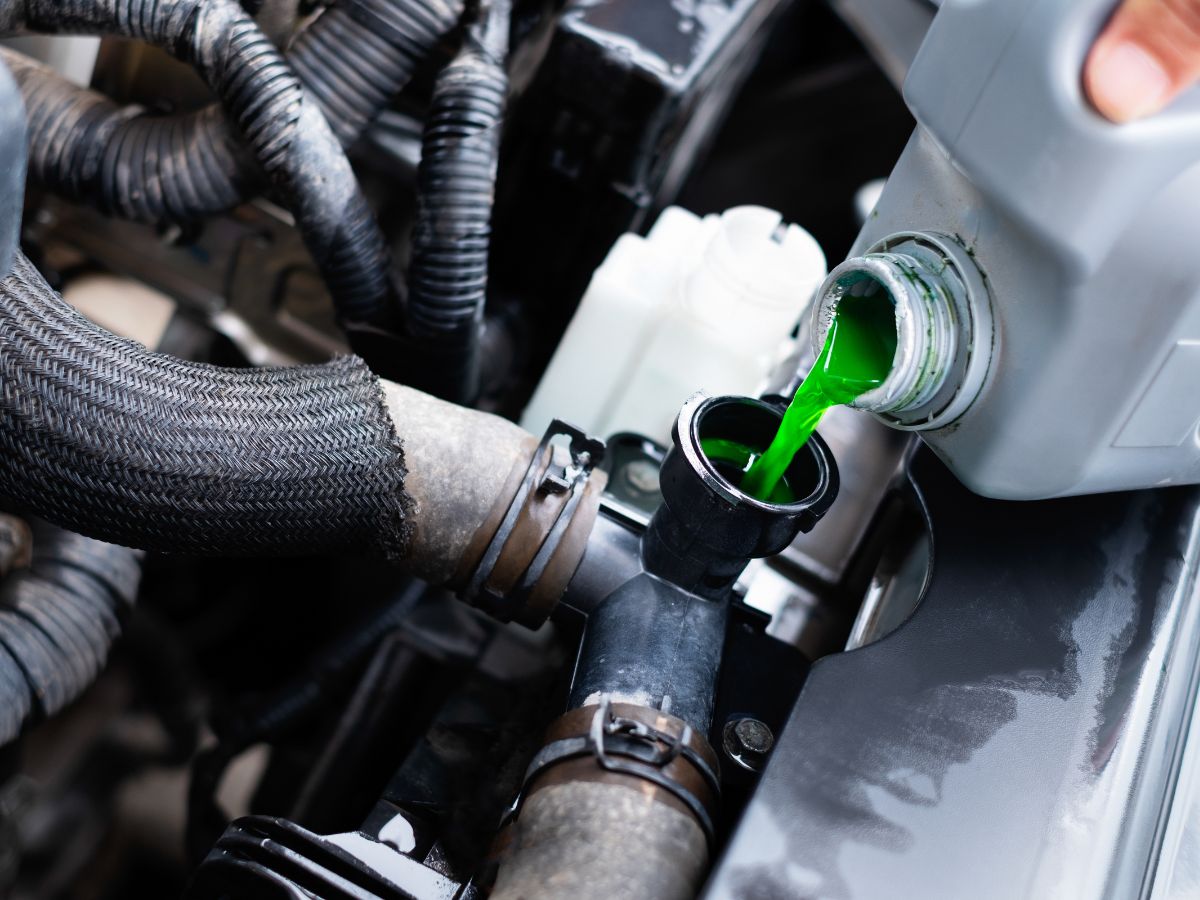
The Role of Coolant in an Engine
To understand why coolant might gurgle after you shut down your engine, it’s crucial to grasp what coolant is and its pivotal role within your car’s engine.
Coolant, often referred to as antifreeze, is a vital fluid that circulates through your engine to maintain optimal operating temperatures. In simple terms, it acts like the human body’s cooling system: just as our bodies sweat to prevent overheating, cars use coolant to regulate engine temperature and prevent overheating or freezing.
When your engine is running, it generates a significant amount of heat. If this heat isn’t controlled, it can cause severe damage to your engine components, including the head gasket, pistons, and cylinders. This is where the coolant steps in. It absorbs the excess heat produced by the engine and dissipates it through the radiator.
The coolant doesn’t work alone. It is part of a larger cooling system which includes several components such as the radiator, water pump, thermostat, and various hoses and passages. The coolant moves through these parts, driven by the water pump.
As the coolant flows, it not only absorbs heat from the engine but also helps lubricate the water pump and prevent rust and corrosion within the cooling system.
But what happens when you turn off your engine? You might think that everything stops, but that’s not the case. Heat continues to dissipate from the engine to the coolant, which can sometimes result in gurgling sounds.
Symptoms of Coolant Issues
A well-functioning coolant system is crucial for maintaining the health of your engine. But how can you tell if there’s something amiss with your vehicle’s coolant system? Here are a few common symptoms that signal potential coolant issues:
1. Overheating Engine
If your coolant isn’t functioning properly, your engine can overheat, which may be indicated by a high-temperature reading on your dashboard. Overheating can cause severe damage to your vehicle’s engine and should be addressed promptly.
2. Visible Coolant Leaks
Coolant comes in various colors, including green, orange, pink, or yellow, and it has a sweet smell. If you spot brightly-colored, sweet-smelling fluid pooling under your car, it’s likely that your coolant system has a leak.
3. Low Coolant Levels
Regularly checking your coolant level can help identify potential issues early. If you notice that your coolant level drops rapidly between checks, there could be a leak, or your vehicle may be consuming coolant too quickly.
4. Unusual Gurgling Noises
As we’re focusing on in this blog post, a gurgling sound after shutting down the engine can indicate air trapped in your coolant system. However, gurgling can also happen while the engine is running if there are coolant issues.
5. White Smoke from Exhaust
If you see white smoke coming out of your exhaust, it might mean that coolant has leaked into the engine’s combustion chambers. This symptom requires immediate attention as it could lead to major engine damage.
6. Heater Isn’t Working
The vehicle’s heater uses coolant to generate heat. If your car’s heater isn’t working, particularly when the engine has warmed up, this could indicate an issue with the coolant system.
Understanding and identifying these symptoms can save you from more severe car troubles down the line. Remember, your vehicle often gives signs when something’s wrong. It’s always important to address these early warnings to avoid more serious problems later on.
Causes of Coolant Gurgling After Engine Shutdown
Understanding why your vehicle’s coolant system might make a gurgling sound after the engine is shut down requires an examination of several potential causes. The following are the most common reasons you might be hearing this unsettling noise:
1. Air in the Cooling System
Air trapped in the cooling system is the most common cause of gurgling noises. When air gets into the system, it can create pockets of empty space that disrupt the smooth flow of coolant, leading to gurgling sounds.
2. Leaks in the Cooling System
Leaks, whether in the coolant reservoir, radiator, or one of the hoses, can introduce air into the system and lower the amount of coolant, causing the gurgling noise. Leaks can occur due to wear and tear or because of damage to these components.
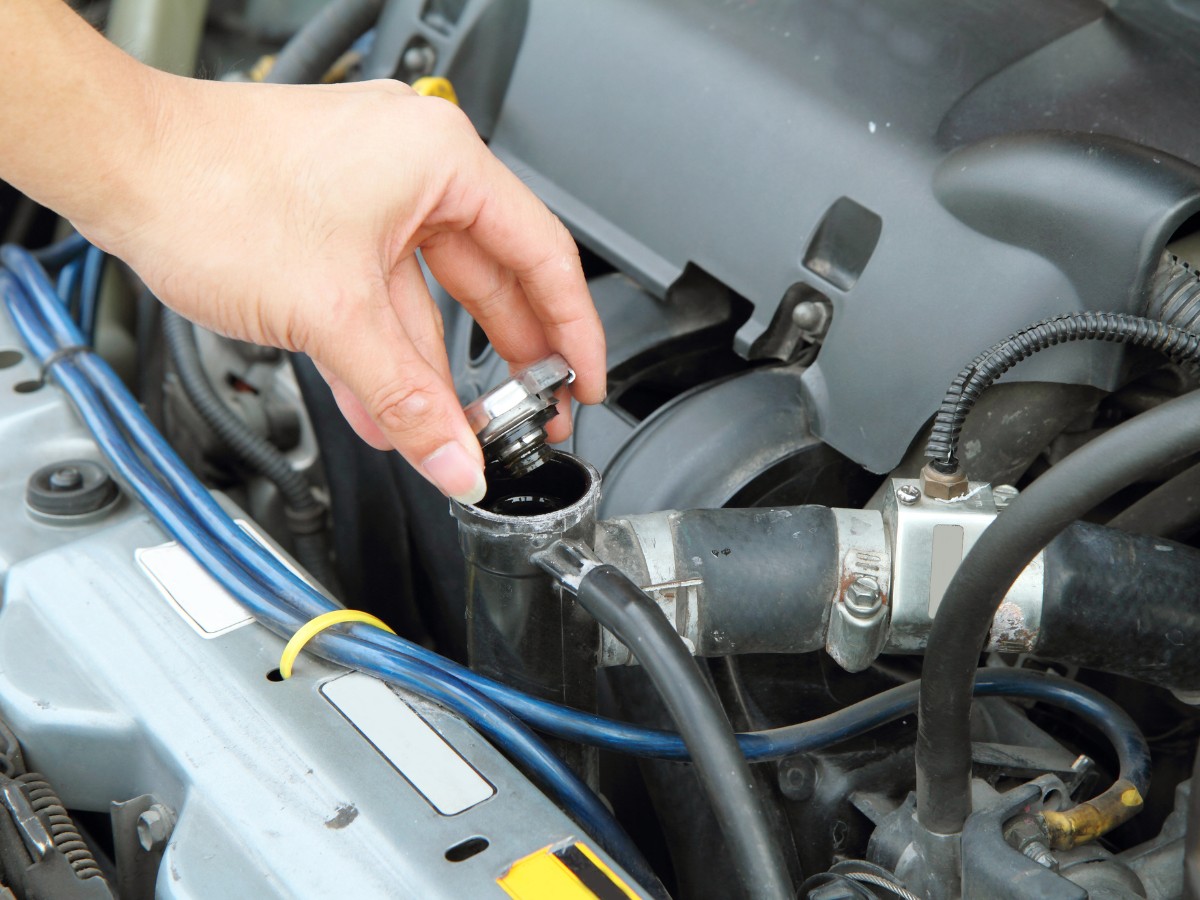
3. Faulty Radiator Cap
The radiator cap is designed to maintain a certain level of pressure within the cooling system. If it’s faulty or doesn’t seal correctly, it can cause air to get into the system or coolant to boil, which can result in gurgling sounds.
4. Insufficient Coolant
If the coolant levels are low, it can result in air being sucked into the coolant pump, leading to noise. A common reason for low coolant levels is neglecting to top up the coolant or a leak in the system.
5. Bad Water Pump
The water pump propels the coolant through the system. If it’s broken or malfunctioning, it can create turbulence or air bubbles, which may lead to gurgling noises.
Causes of Coolant Gurgling After Engine Shutdown
Understanding why your vehicle’s coolant system might make a gurgling sound after the engine is shut down requires an examination of several potential causes. The following are the most common reasons you might be hearing this unsettling noise:
1. Air in the Cooling System
Air trapped in the cooling system is the most common cause of gurgling noises. When air gets into the system, it can create pockets of empty space that disrupt the smooth flow of coolant, leading to gurgling sounds.
2. Leaks in the Cooling System
Leaks, whether in the coolant reservoir, radiator, or one of the hoses, can introduce air into the system and lower the amount of coolant, causing the gurgling noise. Leaks can occur due to wear and tear or because of damage to these components.
3. Faulty Radiator Cap
The radiator cap is designed to maintain a certain level of pressure within the cooling system. If it’s faulty or doesn’t seal correctly, it can cause air to get into the system or coolant to boil, which can result in gurgling sounds.

4. Insufficient Coolant
If the coolant levels are low, it can result in air being sucked into the coolant pump, leading to noise. A common reason for low coolant levels is neglecting to top up the coolant or a leak in the system.
5. Bad Water Pump
The water pump propels the coolant through the system. If it’s broken or malfunctioning, it can create turbulence or air bubbles, which may lead to gurgling noises.
Identifying the exact cause of the gurgling sound can sometimes be a process of elimination.
How to Fix Coolant Gurgling After Engine Shutdown
Once you’ve identified the potential causes of the gurgling noise, it’s time to take the necessary steps to resolve the issue. Here are some possible fixes:
1. Bleeding the Cooling System
If there’s air trapped in your cooling system, you’ll need to ‘bleed’ the system. This involves opening the bleed screw, a small valve, located at the highest point of the cooling system, and allowing the coolant to run until it’s free of air bubbles. Ensure the vehicle is cold before doing this to avoid burns from hot coolant.
2. Checking and Repairing Leaks
If you suspect a leak in your cooling system, the first step is to locate it. Look for coolant puddles under your vehicle, traces of dried coolant, or areas of wetness along the hoses. Once you’ve found the leak, it will need to be repaired. Minor leaks can often be fixed with an epoxy, but more significant leaks might require part replacement.
3. Replacing the Radiator Cap
If the radiator cap is damaged or doesn’t seal properly, replacing it is a straightforward fix. Ensure you choose a cap that is suitable for your vehicle’s make and model.
4. Filling the Coolant to the Proper Level
If your coolant levels are low, topping it up could resolve the gurgling noise. Ensure you use the right type of coolant for your vehicle and fill it to the manufacturer’s recommended level.
5. Replacing the Water Pump
If your water pump is damaged or malfunctioning, it may need to be replaced. This job can be complex and may require the skills of a professional mechanic.
Remember, while some of these fixes can be done at home with a basic toolkit, others might require professional attention. It’s always important to know your limits and consult with a professional when necessary. This way, you’ll ensure your vehicle remains in optimal working condition and prevent any further damage.
Prevention is Better Than Cure: Maintenance Tips
Maintaining the health of your vehicle’s cooling system isn’t just about fixing problems as they arise. Taking preventative measures can help you avoid issues altogether and prolong the life of your engine. Here are some maintenance tips:
1. Regularly Check Coolant Levels
Regularly checking your coolant level can help identify potential issues before they become serious. Remember, it’s easier and cheaper to top up your coolant than to replace a damaged engine!
2. Regular Inspection for Leaks
Inspect your vehicle for coolant leaks regularly, especially if you park in the same spot every day. A small puddle of coolant under your car is often the first sign of a leak.
3. Importance of Regular Servicing
Ensure your car gets a full service by a professional mechanic at the intervals recommended by the vehicle manufacturer. They will check the cooling system as part of the service and can catch and fix any potential issues early.
4. Knowing When to Change the Coolant
Over time, coolant loses its anti-corrosive properties, which can lead to rust and scale build-up. A good rule of thumb is to replace the coolant every 30,000 miles or every 5 years, whichever comes first. Always refer to the manufacturer’s guidelines for your specific vehicle.
5. Tips for Buying Good Quality Coolant
Not all coolants are created equal. When you’re buying coolant, don’t just opt for the cheapest one. Make sure it meets or exceeds the manufacturer’s specifications for your specific vehicle.
By adopting these maintenance practices, you can keep your coolant system in top shape and prevent that worrying gurgling sound from occurring after your engine shutdown.
Wrapping it up
In closing, it’s important to remember that your vehicle is a complex piece of machinery. The gurgling noise you might hear after engine shutdown is just one of the many ways it can signal that something needs your attention.
This sound, often caused by air in the cooling system or issues related to the coolant, can be disconcerting, but now you know that it can be fixed and, better yet, prevented.
Always keep in mind that understanding your car and its various components, like the coolant system, can make a significant difference in your vehicle’s longevity and your driving experience. Regular maintenance checks and prompt action when problems arise will keep your car in optimal shape.






